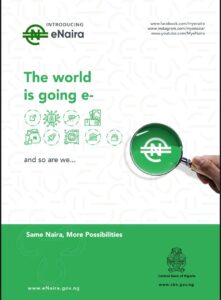“If we seriously want change in our agricultural sector, we need to start from seed, seed determines the productivity of other inputs. If your seed is bad, your fertiliser is good, your management is superb, at the end of the day, your yield will be poor because your farm cannot yield more than the quality of the seed you planted.”
That was the submission of Professor Marouf Ayodele Adedisi, a professor of seed science and technology at the Federal University of Agriculture, Abeokuta.
Prof. Adedisi was speaking in an interview at the end of a three-day capacity building session on seed planning for industry stakeholders using the regional electronic platform organised by the National Agricultural Seeds Council (NASC) in collaboration with AGRA, AVISA, and Syngenta in Abuja recently.
The capacity building session brought together stakeholders in the seed system to learn how to plan their production to avoid under production and oversupply both of which are bad for the system.
Nigeria has been struggling with food insecurity occasioned by banditry, natural disasters like flooding and droughts as well as low adoption of improved seeds by farmers.
Between 2016 and 2021, Nigeria spent a total of N6.47 trillion to import agricultural products like wheat, sugar, fish, milk, and others according to Dataphyte’s latest research brief titled “From Farm to Future: Thoughts on Food Security, Farmers’ Prosperity and Fiscal Stability in Nigeria”. The nation is presently facing high food inflation that has reached over 23 percent as at August this year according to recent figures released by the National Bureau of Statistics (NBS)
The Director-General of the National Agricultural Seeds Council (NASC) Dr. Philip Ojo, who also spoke at the training, charged stakeholders in seed production to embrace proper seed forecasting planning to help Nigeria in its quest to increase food supply to the people.
Ojo said one of the key elements of a seed system is how actual demand is estimated considering factors like weather, market, farmers’ skills to maintain Seed and Sources of Seed.
According to him, “A fair demand assessment is crucial for actors engaged in the system including government, producers, importers and distributors.”
He noted that lack of information on the accurate estimation of seed demands often puts seed enterprises and breeder seeds producing units in disarray.
“It is well recognized that current performance of the system in terms of availing the required type of seed in the required quantity and quality at the required place and affordable price is below satisfaction,” he said.
The NASC DG said seed demand estimation plays a very important role in management decision making both by the government and seed growers. “Some idea about the future is prerequisite for making decisions in various aspects of seed supply management,” he said.
“In a country like Nigeria where greatest importance is attached to the use of productivity enhancing agricultural inputs such as improved seed, where most of the seed is locally produced, demand forecasting is essential for; determining the amount of seed required by each crop and variety and plan seed production accordingly; strengthening seed quality control mechanisms; knowing the potential demand and hence design appropriate extension method that convert the potential demand to an effective demand and; formulation of policies regarding seed use and food production.”
To check the seed supply and demand gap through accurate seed demand estimation and forecasting, the NASC boss informed that CORAF has developed an electronic-based tool for seed planning and demand forecasting.
“This tool is a practical instrument used in the process of making projections of the potential and actual seed demands to support both the public seed sector and private seed companies’ decision-making. This tool would be unveiled during this training,” he said.
Making his presentation at the event, Steve van der Merwe, the facilitator, from South Africa, said that planning is essential for a successful seed production.
According to him, “Failing to plan is planning to fail.”
He said that the key principles in seed production include, the production of high quality seeds, being reliable, being cost effective and delivering seeds on time.
On why the yield of an average Nigerian farmer is low, Prof. Adedisi said, only very few farmers, especially the smallholder farmers use improved seed for planting.
“Generating consciousness about the use of seed is not easy, because our fathers are used to planting their grains as seed. What they don’t know is that there is a world of difference between grain and seed. Sometimes people confuse it with each other, the process of production of the two are the same, but there are so many factors that separate the two, a seed is a planting material. If you want to grow plant it is the first thing you use for regeneration while the grain is only meant for consumption and for industrial purposes.
Secondly when you talk of seed, viability is key, that is the ability to replicate itself, but in terms of grain, the nutrients is what is important.”
He said there is a need for attitudinal change among the farmers. “I know it is very difficult to change, however it is a gradual process. If you look back a few years ago, little attention was paid to seed, in fact it started only as a department in the Ministry of Agriculture and Rural Development but now it is becoming larger.
“But I must say this, the seed industry is not well developed in Nigeria, the percentage of people who are using quality improved seeds is very low, they are not up to 20 percent. But we are gradually coming to life and we are now trying to reach out to farmers.
It is a known fact that most farmers choose to use their grains to plant against the seeds because many of them cannot afford to buy improved seed. “Yes I agree that seed is more expensive than grain but at the end of the day, if you consider the yield from grain and that of seed you will see that it pays more to use seed,” Prof Adedisi said.
“What we can do to bring about a change of attitude by farmers to adopt seed culture is to use qualified seed extension agents, but the irony in this country is that many of the extension officers we have presently are not up to date in terms of knowledge, they are also not enough, we also have logistic problems.
“Seeds are used in rural areas which have problems of communication, flooding and bad roads. If you go to many states in Nigeria the offices of the extension officers are not functioning and the simple reason for that is that there is no funds for them to move around.
“An extension agent that does not even have a common bicycle, how do you want him to get to remote farms? That is why they are not delivering.”
So how do we achieve food security without the seeds in the hands of farmers?
The Professor of seed science said, “Government can do a lot, it is probably because those in authority now have not shown enough political will that is why we are where we are. When Akinwumi Adesina was minister of Agriculture you saw what happened, they developed a programme where the government bought seeds from different seed companies and distributed to farmers at the cheapest prices and many farmers benefited from it, but since that administration left, that programme was abandoned.
“Again, the government needs to revive the extension units, we have many extension agents who have graduated from the University but they are still roaming the streets unemployed. Government should engage them and empower them to go into the remote areas and meet the local farmers.
“The state governments should revive their Agricultural Development Programme to start functioning very well.”
He said Nigeria currently has 313 recognised companies. “As at last year, the number of approved by the seed council is over 313 seed companies. Another 116 are in the process of being approved, but that is not enough compared to our over 200 million people. We need more.
“Many of these companies do not have the resources to move into the rural communities in the country to promote use of seed, that is where government need to come in.”
The Vice Chancellor of Technical University, Ibadan, Professor Adesola Ajayi, said it is unfortunate that Nigeria cannot tell it aggregate national seed production capacity.
According to him, “If we don’t know our capacity how do we plan? We need that information to know whether we are going to allow imports or not, how much resources we have to commit to agricultural research, research institutes need to be empowered. If we don’t have idea of our capacity we are going to have problems.”
The professor of Crop Science, said training of people in the seed system is very important not only to the individual companies but also to the nation as a whole.
“It is not just enough for us to learn this, it is more important for us to pass this knowledge down to the grassroots.”
By Joseph Amah.
Joseph is an agric expert and public commentator












